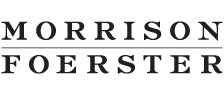Best Lawyers Near You in Newport Beach, California for Litigation - Regulatory Enforcement (SEC, Telecom, Energy)
Practice Area Overview
Additionally, certain organizations and individuals may be subject to disciplinary investigations and action by self-regulatory organizations overseen by an administrative agency, such as the Financial Industry Regulatory Authority or the Public Company Accounting Oversight Board. Many regulatory enforcement actions are civil proceedings; however, federal and state criminal agencies, including the Department of Justice and state Attorneys General, may share enforcement authority. Particularly egregious transgressions thus may be subject to criminal investigation and enforcement as well.
Regulatory enforcement matters are initiated in a variety of ways, including by a whistleblower tip, an agency’s own monitoring of the industry, or self-reporting by a firm or individual. Enforcement matters typically begin as a fact-finding investigation, which are often nonpublic. Agencies may have the authority to seek documents from companies, as well as to subpoena individuals to provide sworn testimony on the record. Information may be sought from third parties, as well as from firms and their current or former employees. Additionally, internal investigations conducted by independent outside counsel may precede or run in parallel with a regulatory investigation. Once an investigation is completed, enforcement personnel typically make a recommendation about the appropriate enforcement action to take, or whether to drop the matter. If approved, an enforcement action frequently, but not always, is filed as a public proceeding.
Regulatory enforcement defense attorneys counsel organizations and individuals through investigations and, if needed, litigation. Defense counsel acts as the primary contact with agency personnel, often gleaning valuable insights into an investigation’s direction and scope in the process, and presenting opportunities to advocate against further action involving a client. As a result, counsel frequently is retained early in an investigation. Likewise, regulatory enforcement attorneys regularly conduct, or represent individuals in, internal investigations. Regulatory enforcement counsel also defends clients against claims alleged in filed enforcement actions, which may proceed as an administrative hearing or as a lawsuit in the federal or state courts.
Corporate Law & Commercial Litigation Legal Guide 2025
View Legal GuideLawyers who have a subscription to profiles appear first.
Would you like to claim your lawyer profile?
Contact UsOur Methodology
Recognition by Best Lawyers is based entirely on peer review. Our methodology is designed to capture, as accurately as possible, the consensus opinion of leading lawyers about the professional abilities of their colleagues within the same geographical area and legal practice area.
The Process
Best Lawyers employs a sophisticated, conscientious, rational, and transparent survey process designed to elicit meaningful and substantive evaluations of the quality of legal services. Our belief has always been that the quality of a peer review survey is directly related to the quality of the voters.


